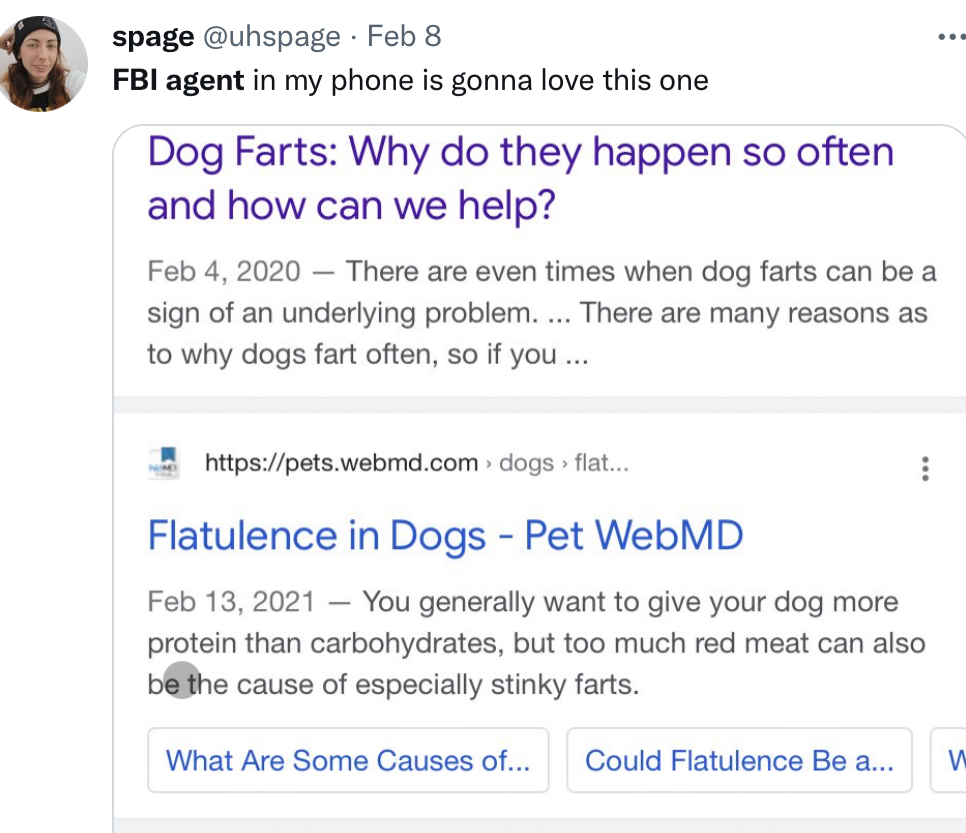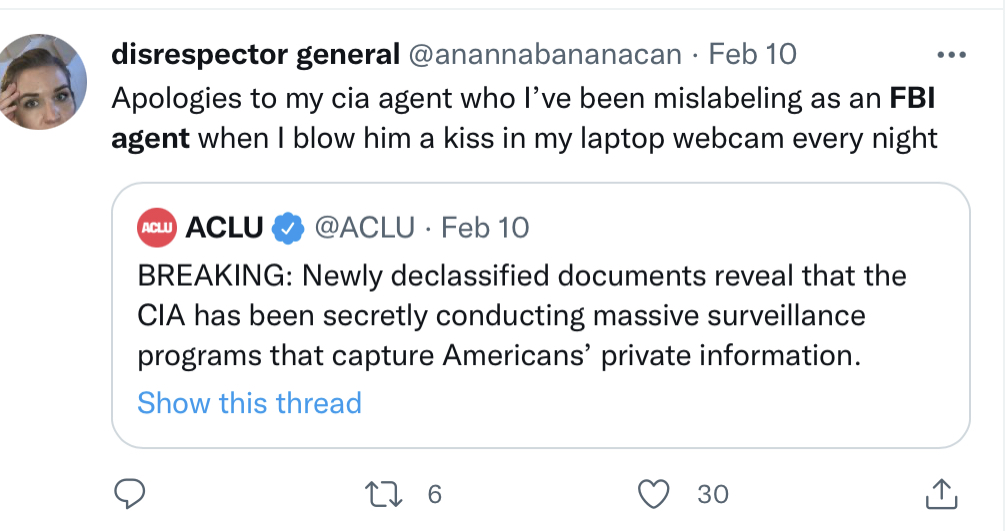A recent decision in France ruled that Google Analytics are in breach of section 44 of the GDPR due to international transfers in data, particularly those to the US. The commission which issued the ruling, the CNIL, expressed concerns over what would happen to the data once it entered the United States, saying that French website users were at risk of having their data exploited, and citing concerns over accessibility of the data to US intelligence services. This comes after a 2020 ruling in the EU’s highest court, which again cited concerns that non-US persons could be subject to arbitrary surveillance from the US.
This ruling, which could have broad ramifications for the EU presence of internet behemoths (at least according to tech CEO Zuckerberg, seen here throwing a tantrum), also draws attention to the differing expectations of privacy in the EU and the US.
In the aftermath of the Snowden NSA revelations, it became a constant internet joke that nothing you do online is private, at least for those in the United States. One popular meme in recent years arising from this has been the “FBI agent meme”.



While jokes, these memes highlight the very real phenomenon that many young people no longer have an expectation of privacy, at least from government surveillance. This is exacerbated by the fact that information about government surveillance continues to be released, often to little surprise from the general public:

While most Americans hold strong views about the importance of privacy in their lives, few have confidence that their data will remain private and secure, with only 6% of adults saying they were “very confident” that their government agencies can keep their records private and secure. When asked about the data government collects as part of anti-terrorism efforts, 65% of Americans said there were not adequate limits. And this information was from 2014, surveying adults.
Surprisingly however, younger Americans have begun to place less value on privacy, at least according to some preliminary studies. Only 42% of Gen Z respondents said that data privacy is very important to them, as opposed to 54% of millenials. It is unclear whether this is due to the fact that this generation grew up with less expectation of privacy, both from the government and companies, as the first true digital natives.
So why is this important? In many jurisdictions, including Canada, the guarantee of freedom from search and seizure only extends to what a person sees as a “reasonable expectation of privacy”. If a descriptive approach applies here, where the “reasonable expectation” is based on what privacy people believe that they have, then this changing expectation of privacy could be reason for extensive government overreach; after all, we expect the government to be watching us. This is why ensuring that cases take a normative approach, or looking at values and what “ought” to be the case, is likely the approach to take due to the deterioration in expectations of privacy.

Interesting post! I have seen so many memes about this and have laughed about it but it’s more than a joke like people have access to all of our private data and we never know what they are gonna do with it, we cannot completely prevent this but some precautions which we can take are enable two-factor authentication, run automatic updates, turn on a firewall, backup your data in case you need to wipe your device clean, never click links from strangers, and use strong passwords or a password manager. Also, keep watch for odd activity.
Great suggestions! However a lot of them, while they might deal with “bad actors”, they still don’t stop things like companies from tracking us. I think an interesting discussion can really be had about privacy from government vs privacy from private companies.
Interesting post. It reminds me of a movie named Snowden. If you have not watched this movie, I insist you do for at least once to understand how we are being in secret surveillance by the CIA, FBI, in the United States. It is no surprise to me however that the government is secretly collecting our data, breaching our personal lives’ privacy. I believe there is nothing private in the internet, because at the end of the day, it’s someone’s server we are keeping our data believing that it’s hidden and only accessible by me.
I agree wholeheartedly with this, nothing we do online can really be considered private. It is quite disappointing to me that people increasingly don’t expect or care that their information is not private, although I must confess it is a favorite joke of mine in a conversation to hold up my phone and ask if “Mr. Gates” agrees with my most recent statement.
I do think that it is good to try to limit what information we allow websites to track, even if we cant limit all tracking. For example, I think I will start using the privacy badger that we tried out in worksheet 4.
I’d be really interested to hear more about these beliefs, especially when they formed. Were the Snowden revelations a tipping point for you or was it something else? Also do you think Canadian government tracks us in the same way?
Good Post! I found the studies regarding Americans’ opinions on the importance of privacy interesting. Particularly the preliminary studies that conclude that younger Americans place less value on digital privacy, as they were born with instant access to the vast sea of content found on the internet (maybe leading to a lesser expectation of privacy, as you mentioned). I wonder, will this trend continue as more and more people are born and grow up with access to the Internet? Will opinions about privacy continue to become more relaxed as time goes on? It would be fascinating to see whether another event like the Snowden whistleblower development is in the works (if current trends regarding opinions on privacy continue) and how such an event would affect opinions going forward.
Wow! Thanks for sharing the post. It is true that many people no longer believe in protecting their privacy. My friends usually joke around about how useless and stupid their data is to be collected such as “My data has no value for them to collect. They can take as much as they want. I don’t really care.” My sister also has the same opinion: “If they want to take it, they take it. Even if we care, it is nothing we can do.” In addition to the lower expectation, common users do not know how to protect their privacy and if the effectiveness of measures is worth trying.